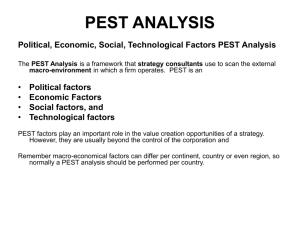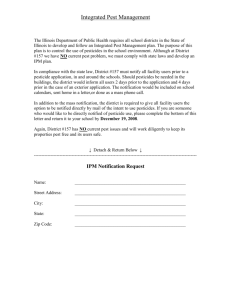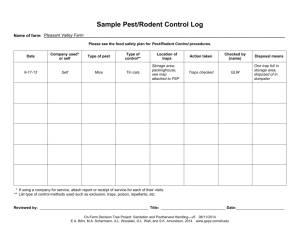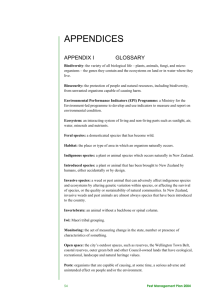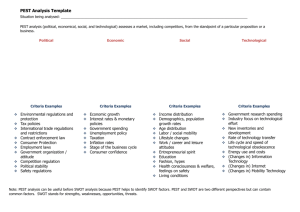History-of-PCOC-2015
advertisement
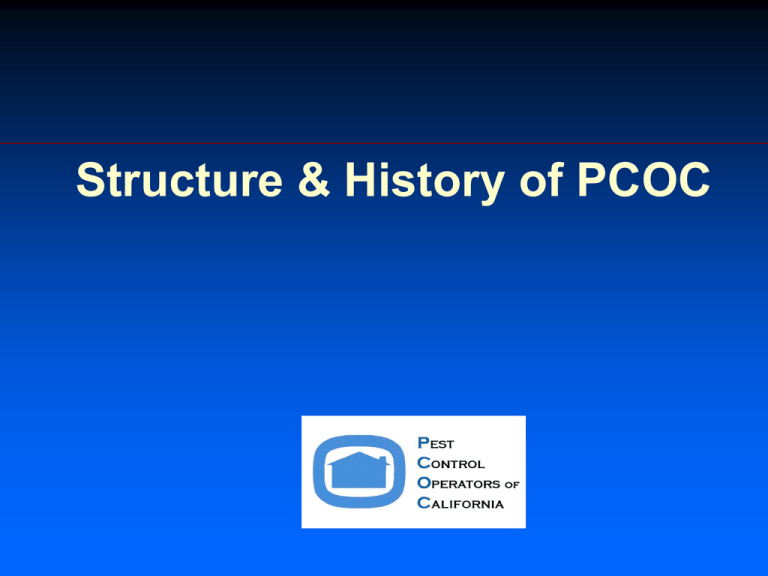
Structure & History of PCOC Main Purpose of PCOC The purpose of the Pest Control Operators of California (PCOC) is to provide structural pest control licensees throughout the state with representation, advocacy, education and services that can positively affect their operations. The first modern firms The first recorded California pest control firm to emerge was Barden’s Pest Control in Long Beach. Barden’s did pest control, new home construction and home repairs. Early pioneers in California structural pest control focused on cockroaches, mice, rats, and bedbugs. Earthquake Key to Development of the WDO Industry In 1932 there was an earthquake that shook southern California houses off their foundations. Pest control companies and contractors attempting to repair the damage caused by the earthquake found that the homes with the most severe damage from the earthquake also had termite damage. Earthquake & Banks This earthquake became the key events which not only lead to the development of companies who specialized in inspecting for termites and other wood destroying organisms but also to many of the rules governing it’s practice. In 1938 San Francisco Bankers began insisting on termite inspections for any home they loaned money on. The Industry Unites for Consumer Protection During the early 1930s there were three pest control associations in California; The termite association, fumigators' association and the general pest control association. In 1934 these three groups merged to form the state association of pest control operators for the purpose of driving fraudulent pest control firms from the industry. The First Structural Pest Control Act State association of pest control operators felt that the industry needed rules to ensure consumer were not cheated by the numerous charlatans who were loose within the state, tainting the whole industry. They lobbied the legislature and convinced them to establish the structural pest control act and regulatory board. January 1, 1936 … The structural pest control act became law. The first conviction under the new structural pest control act came in March of 1936 when R.W. Broadsman was sentenced to 30 days in jail, and fined $50 for operating in Pasadena with out a termite control license. The Association Started With Five Districts and 112 PCO's Los Angeles District Santa Barbara District San Diego District Fresno District San Jose District ….today the Association has 20 districts statewide and a membership of 1,300 Standardization a Key From the late 1930s two of the key areas of interest to the pest control industry were: 1: Standardization of Enforcement 2: Standardization of the Wood Destroying Pests & Organisms Reports More Teeth to the SPCB 1978 SPCB Members The industry was not satisfied with the level of enforcement from the SPCB, so the Association voted to lobby the legislature to establish a $25.00 annual fee to further fund the SPCB and to ensure they had full time staff to investigate and enforce their laws. Government Affairs While our governmental affairs program serves the interests of all operators in the state regardless of their affiliation with PCOC and each respective district, these efforts are only possible with the support of these same operators. Legislative Advocacy Regulatory Advocacy Regulatory Advocacy PCOC continually works very closely with various state agencies to monitor their activities and provide PCOC members with up-to-date information. Some of these agencies include: Structural Pest Control Board County Agricultural Commissioners Association Department of Consumer Affairs Department of Transportation Cal-OSHA Department of Pesticide Regulation Fish & Game, and many others. PCOC Subsidiary Organizations Political action committee PCOC cares charity PCOC scholarship foundation Peacock group insurance/PCOC insurance PCOC members and Special Olympics kids on the Field at Dodger Stadium.
